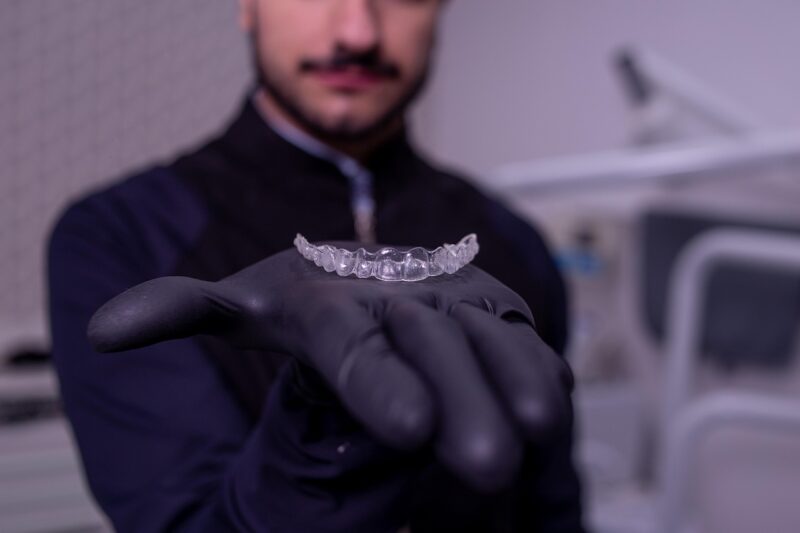
Introduction
Chronic pain is more than just physical discomfort—it is a persistent condition that can deeply affect a person’s emotional and mental well-being. Living with pain that lasts for months or even years can take a significant toll on mental health, leading to feelings of frustration, helplessness, anxiety, and depression. The connection between chronic pain and mental health is complex and intertwined, often creating a vicious cycle where pain exacerbates emotional distress, and emotional distress worsens the pain.
In this article, we will explore the effects of chronic pain on mental health, the challenges faced by those living with chronic pain, and strategies for managing both physical and emotional well-being.
Understanding Chronic Pain
Chronic pain is defined as pain that lasts for more than three to six months, often persisting long after an injury has healed or even in the absence of an identifiable cause. Common conditions that lead to chronic pain include arthritis, fibromyalgia, back pain, migraines, and conditions like neuropathy. According to the Centers for Disease Control and Prevention (CDC), approximately 20% of U.S. adults experience chronic pain, making it a widespread health issue.
The ongoing nature of chronic pain can impact daily life, limiting a person’s ability to work, engage in hobbies, or maintain relationships. Over time, the physical burden of pain can have serious consequences for mental health.
How Chronic Pain Affects Mental Health
The constant presence of pain can make even simple tasks feel overwhelming, leading to frustration and emotional exhaustion. Chronic pain and mental health are closely linked, with each condition affecting the other in a cycle that can be difficult to break.
Depression
One of the most common mental health conditions associated with chronic pain is depression. Studies show that individuals with chronic pain are more likely to experience depression, as the pain can lead to a sense of hopelessness and loss of control. The American Psychological Association (APA) reports that 30-50% of people with chronic pain also struggle with depression.
Chronic pain can make it difficult to find joy in everyday activities, and over time, the ongoing discomfort can wear down a person’s emotional resilience. Feelings of sadness, worthlessness, and even thoughts of suicide can develop when a person feels trapped by their pain with no end in sight.
Anxiety
Anxiety is another common issue for individuals dealing with chronic pain. The unpredictability of pain flare-ups can create constant worry, as individuals fear when the next bout of pain will strike and how intense it will be. This can lead to anticipatory anxiety, where people become anxious just thinking about the possibility of pain, which in turn increases physical tension and discomfort.
Additionally, chronic pain may limit a person’s ability to participate in social activities or work, leading to anxiety about the future, financial stability, and social isolation.
Sleep Disturbances
Chronic pain often interferes with sleep, either because the pain itself makes it hard to fall asleep or stay asleep or because the stress and anxiety surrounding the pain make it difficult to relax. Sleep disturbances are particularly problematic because they can worsen both physical pain and mental health. Lack of sleep exacerbates feelings of irritability, stress, and depression while also reducing the body’s ability to cope with pain.

According to the National Sleep Foundation, people with chronic pain are 2 to 3 times more likely to suffer from insomnia or other sleep disorders, creating a cycle where poor sleep leads to worsened pain, which in turn makes sleep even more difficult.
Cognitive Challenges
Chronic pain also affects cognitive function, leading to issues such as brain fog, difficulty concentrating, and memory problems. This is often referred to as “pain-related cognitive dysfunction,” and it can make it challenging for individuals to complete daily tasks or stay focused at work. These cognitive challenges can increase frustration and further contribute to anxiety and depression.
The Vicious Cycle of Pain and Mental Health
Chronic pain and mental health issues often feed into each other, creating a vicious cycle that can be hard to break. Pain causes stress, anxiety, and depression, which in turn heightens the perception of pain. Studies show that emotional distress can amplify physical pain by sensitizing the brain’s pain receptors, making even mild pain feel unbearable.
For example, when a person is anxious, their muscles may tense up, which can intensify pain. Similarly, when a person is depressed, their motivation to engage in physical activity or seek treatment may decrease, worsening the pain and deepening the depression. This cycle can feel never-ending, making it difficult for individuals to find relief.
Strategies for Managing Chronic Pain and Mental Health
While chronic pain can be debilitating, there are strategies that can help individuals manage both their physical pain and their mental well-being. A comprehensive approach that addresses both aspects of health is essential for improving quality of life.
Cognitive Behavioral Therapy (CBT)
Cognitive Behavioral Therapy (CBT) is one of the most effective treatments for managing the mental health effects of chronic pain. CBT helps individuals identify negative thought patterns related to their pain, such as feelings of hopelessness or catastrophizing, and teaches coping strategies to manage stress and emotional distress.
A study published in the journal Pain Medicine found that CBT was effective in reducing both pain and depression in individuals with chronic pain by helping them reframe how they think about their pain and develop healthier coping mechanisms.
Mindfulness and Relaxation Techniques
Mindfulness meditation, deep breathing exercises, and progressive muscle relaxation can help individuals manage the mental and emotional strain of chronic pain. These techniques encourage a focus on the present moment, helping individuals reduce anxiety about future pain and calm their nervous system.
Research shows that mindfulness-based stress reduction (MBSR) programs can significantly reduce both pain intensity and emotional distress in people with chronic pain. By practicing mindfulness, individuals can learn to observe their pain without becoming overwhelmed by it.
Physical Activity and Movement
While it may seem counterintuitive, gentle physical activity can actually help alleviate some of the symptoms of chronic pain. Exercise releases endorphins, the body’s natural painkillers, and helps reduce stress and anxiety. Low-impact activities like swimming, walking, or yoga can be particularly helpful for managing both physical pain and mental health.
It’s important to start slowly and consult with a healthcare provider to find the best form of exercise that won’t exacerbate pain.
Support Groups and Peer Connections
Connecting with others who are dealing with similar challenges can be a powerful source of emotional support. Chronic pain support groups, whether in person or online, offer a space for individuals to share their experiences, coping strategies, and emotional struggles. These groups help reduce feelings of isolation and provide encouragement from others who understand the day-to-day difficulties of living with chronic pain.

According to the American Chronic Pain Association, support groups can help individuals feel less alone in their struggles and provide a valuable source of emotional relief.
Professional Help
If chronic pain is severely affecting mental health, it’s important to seek professional help from a therapist, counselor, or psychiatrist. Integrated pain management programs that combine physical therapy, mental health counseling, and medical treatment offer a comprehensive approach to managing both the physical and emotional aspects of chronic pain.
Conclusion
Chronic pain can have a profound impact on mental health, leading to depression, anxiety, sleep disturbances, and cognitive challenges. The relationship between pain and mental well-being is complex, often creating a vicious cycle that can be hard to break. However, by addressing both the physical and emotional aspects of chronic pain, individuals can improve their quality of life.
Through strategies such as cognitive behavioral therapy, mindfulness, physical activity, and support from peers or professionals, those living with chronic pain can manage both their pain and their mental health more effectively. It’s essential to remember that help is available, and taking a holistic approach to pain management can provide much-needed relief for both body and mind.











